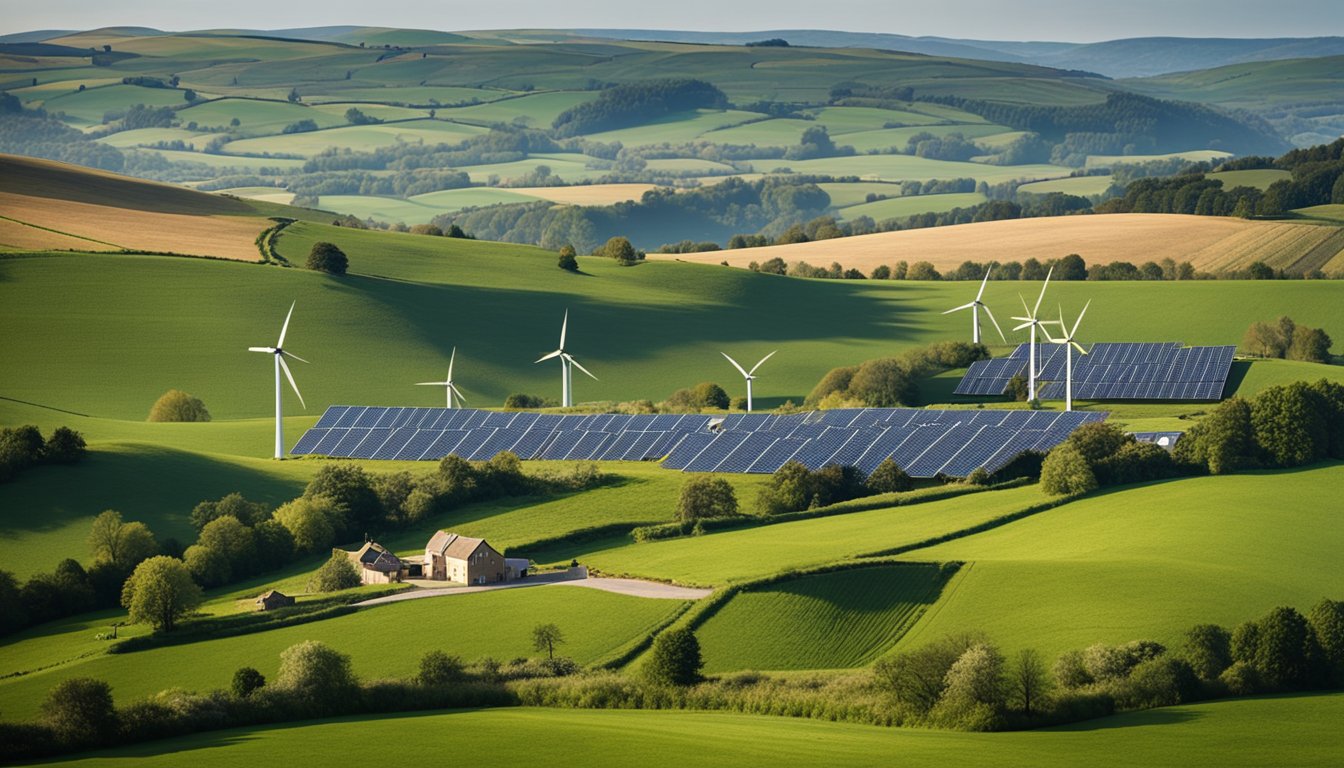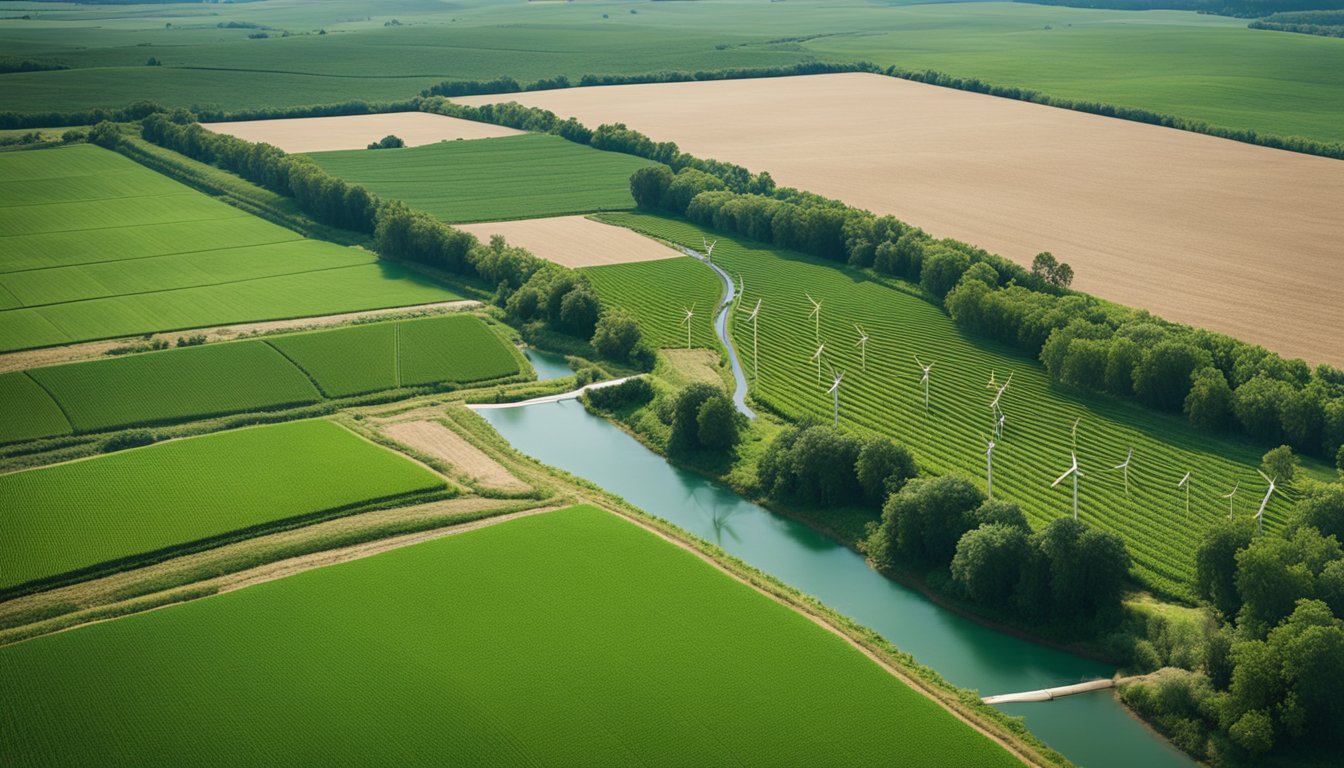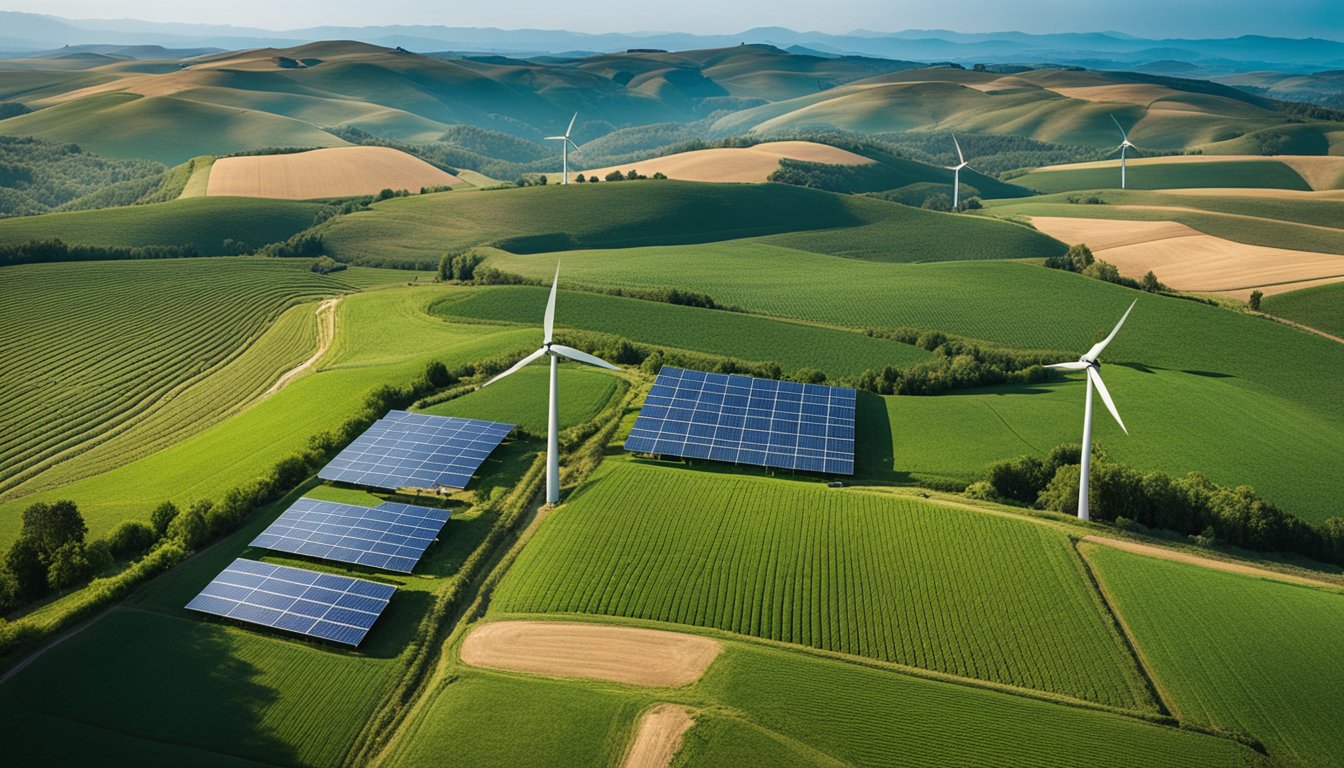Late updated: 02 Oct 2024 08:10
Written by: Oliver Bennett
Sustainable Farming Practices For UK Agriculture: Innovations and Benefits
The growing urgency to address climate change and environmental degradation has reshaped the landscape of agriculture in the UK. Our approach to sustainable farming is no longer an option, but a necessity to ensure the long-term viability of our food systems. Sustainable farming practices not only support environmental recovery but also enhance food production while promoting biodiversity and reducing carbon emissions. By adopting innovative techniques and policies, we can transform our current agricultural practices into ones that prioritise both the environment and productivity.

In recent years, the UK government has introduced several schemes aimed at encouraging sustainable farming methods. These initiatives, such as the Environmental Land Management scheme, incentivise farmers to adopt practices that benefit both their business and the broader ecosystem. With these changes, farmers are better equipped to face the challenges of modern agriculture while making a positive impact on the environment.
Our exploration into sustainable agriculture also delves into the adaptability of these practices in the face of changing climate patterns. Resilient agricultural techniques are essential to counteract the effects of unpredictable weather and maintain stable food production. As we examine these approaches, we'll address common questions and misconceptions surrounding sustainable and resilient farming practices, providing a comprehensive guide for anyone interested in the future of agriculture.
Key Takeaways
- Sustainable farming practices boost productivity and environmental health.
- UK policies support farmers in adopting eco-friendly methods.
- Climate-resilient techniques are vital for stable food production.
Sustainable Farming Incentives in UK Agriculture
Incentives like the Sustainable Farming Incentive (SFI) play a crucial role in promoting environmentally friendly practices in UK agriculture. These incentives focus on improving biodiversity, soil health, and land management while offering financial support to farmers.
Pillars of the Sustainable Farming Incentive
The Sustainable Farming Incentive is central to the UK government's Environmental Land Management scheme. It offers payments to land managers for adopting practices that improve ecological and farming outcomes.
Key pillars include soil health, biodiversity enhancement, and improved land management. By prioritising these areas, the SFI not only supports the ecosystem but also the economic viability of farms. Updated statistics in 2024 reflect increased participation, demonstrating the scheme's effectiveness and flexibility in adapting to diverse farming needs.
Implementing Agroforestry and Cover Crops
Agroforestry and cover crops are vital strategies under the Sustainable Farming Incentive. Agroforestry involves integrating trees with crops or livestock, boosting biodiversity and soil health while providing additional farm income. Cover crops improve soil structure and prevent erosion, complementing traditional crops.
By offering financial incentives through Countryside Stewardship and the Farming Investment Fund, the SFI encourages the adoption of these sustainable farming techniques. This integrated approach helps maintain productive landscapes and ensures a robust Agricultural Transition. As we participate in these initiatives, we contribute to a more sustainable future for UK agriculture.
Climate-Resilient Agricultural Practices

In facing the challenges posed by climate change, it is essential for agriculture to adopt practices that boost resilience while addressing environmental concerns. Effective strategies focus on enhancing soil health and biodiversity while preparing for extreme weather and reducing emissions.
Soil Health and Biodiversity Enhancement
Improving soil health is central to climate-resilient farming. By boosting the organic matter in soil, we increase its fertility and capacity to retain water, which is crucial during droughts. Techniques such as cover cropping and reduced tillage not only improve soil structure but also foster natural biodiversity. Maintaining diverse ecosystems can support farmland birds and other wildlife, reducing biodiversity loss.
Peatland restoration and tree planting are also pivotal. Peatlands are notable carbon sinks, and their restoration helps in storing greenhouse gases, contributing to climate goals. Tree planting, part of our nature recovery efforts, provides shade and windbreaks, reducing soil erosion and supporting a variety of species.
Adapting to Extreme Weather and Reducing Emissions
As extreme weather events become more frequent, adaptive measures are vital. Tenant farmers and landowners can employ practices like building resilient infrastructure and diversifying crops to withstand floods or intense heatwaves. Investing in resilient crop varieties and irrigation systems enhances our farm productivity even in harsh conditions.
In addressing agricultural emissions, focus is on achieving net-zero. Practices such as precision feeding and feed additives in livestock operations help lower emissions. These techniques optimise nutrient intake, reducing methane production—a major greenhouse gas. By integrating these innovative strategies, we work towards reducing the carbon footprint of agriculture while sustaining productivity.
Frequently Asked Questions

In UK agriculture, sustainable farming is gaining significant attention due to its critical role in addressing environmental challenges while ensuring food security. Our goal is to explore concepts such as the Sustainable Farming Incentive and innovative practices that spearhead this approach.
What are the key principles of sustainable farming in the UK?
Sustainable farming in the UK revolves around conserving resources, enhancing biodiversity, and improving animal welfare. Farmers are encouraged to adopt practices like crop rotation, organic fertilisers, and efficient water management to maintain ecological balance and productivity.
How does the Sustainable Farming Incentive aim to improve UK agricultural practices?
The Sustainable Farming Incentive (SFI) promotes environmental stewardship by rewarding farmers for sustainable land management. This initiative reduces carbon emissions and supports biodiversity, climate adaptation, and resource efficiency through government-backed financial incentives.
What are the primary benefits of utilising sustainable farming systems in UK agriculture?
Sustainable farming systems offer numerous benefits, including enhanced soil health, greater resilience to climate change, and improved biodiversity. By reducing dependency on chemical inputs, these systems also mitigate pollution and enhance the overall sustainability of the agricultural sector.
How can sustainable food production be achieved within the UK's climatic and geographical constraints?
Adapting to the UK's unique climate and geography involves tailored agricultural practices such as selecting climate-resilient crop varieties and optimising resource use. These strategies ensure efficient food production while addressing local environmental challenges.
In what ways can UK farmers adopt sustainable intensification without compromising environmental integrity?
Farmers can adopt sustainable intensification by integrating technology and precision agriculture. Techniques like controlled traffic farming and advanced irrigation systems optimise yield while preserving natural habitats and reducing environmental impact.
Which innovative practices are leading the way in UK sustainable agriculture?
Innovative practices such as agroforestry, vertical farming, and digital monitoring tools are transforming UK agriculture. These technologies improve resource efficiency and enable smarter decision-making, setting a benchmark for sustainable practices globally.
